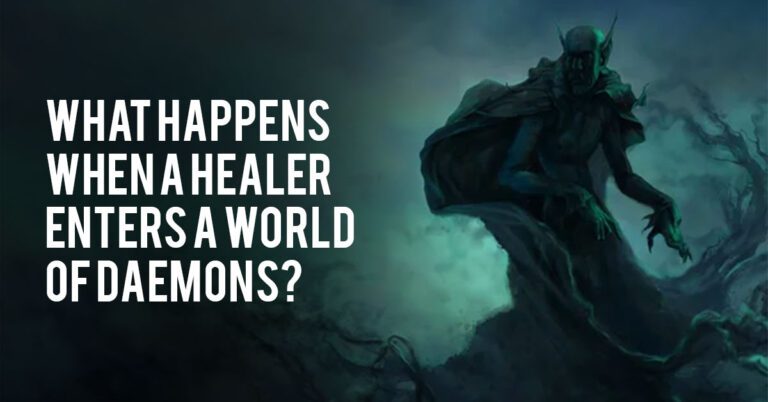Fantasy stories often dazzle readers with grand battles, mystical creatures, and world-shattering spells. But sometimes, the most potent magic in these worlds doesn’t erupt in a duel; it grows slowly, through empathy, reason, and the choice to see beyond fear. In Bloodstone Redemption by Eric Carver, that quiet force is embodied in Dr. Janice Howard, a human physician caught between daemonic power and moral chaos.
When Dr. Howard is first introduced, she’s a prisoner of the Master, a centuries-old wizard king from another world who’s suddenly stranded on Earth. The Master, a cold strategist with a fondness for heart-ripping as a source of magical energy, operates with pure dominance. His lair? The Wormwood Institute, a crumbling asylum turned magical fortress, is now crawling with daemons and soaked in arcane energy.
Most would cower. Dr. Howard doesn’t.
Instead, she assesses the Master’s injuries when a magical mishap nearly kills him. In a powerful sequence, she saves his life using only her medical knowledge and unwavering calm, all while surrounded by creatures more suited to hell than a hospital. She stitches his wounds, administers IV fluids, organizes his care, and commands respect from the daemons, despite being powerless in the traditional fantasy sense.
But her influence doesn’t stop at physical healing. What makes Dr. Howard remarkable is her emotional courage. She treats daemons like patients, not monsters. She asks questions, listens to their concerns, and treats their suffering as real. Over time, her compassion starts to humanize the very beings built to serve destruction.
Characters like Malodorous, the Master’s powerful second-in-command, develop nuance and wit. The once-brutal Retrievers and Forkers begin displaying curiosity, restraint, and moral awareness. It’s not enchantment changing them; it’s the presence of someone who sees them as more than tools.
Even the Master is affected. Though he remains tyrannical, Dr. Howard becomes a voice he listens to. She challenges him without flinching, forces him to explain himself, and reminds him that not every problem can be solved with conquest. When she finally tells him, “I despise you. You and your obscene methods…”, it lands like a slap not just on his ego, but on his conscience. And that, perhaps, is the greatest magic of all: making a tyrant reflect.
Eric Carver’s novel thrives on genre-bending chaos, dark sorcery, satire, horror, and world-building, but Dr. Howard’s arc delivers its emotional spine. She reminds readers that the most courageous act in any world is to care, especially when surrounded by those deemed unworthy of compassion.
In a world where daemons are real and magic can burn cities, Bloodstone Redemption asks: what if healing was the most powerful spell of all? Dr. Janice Howard answers that question—not with fireballs, but with bandages, questions, and a steady, defiant heart.

